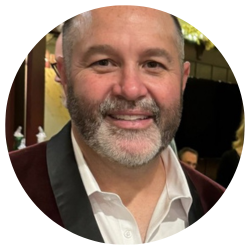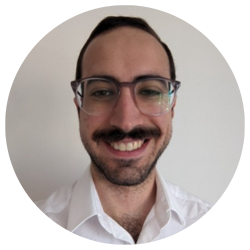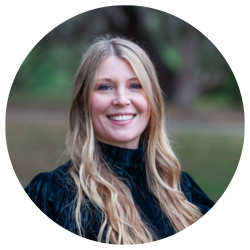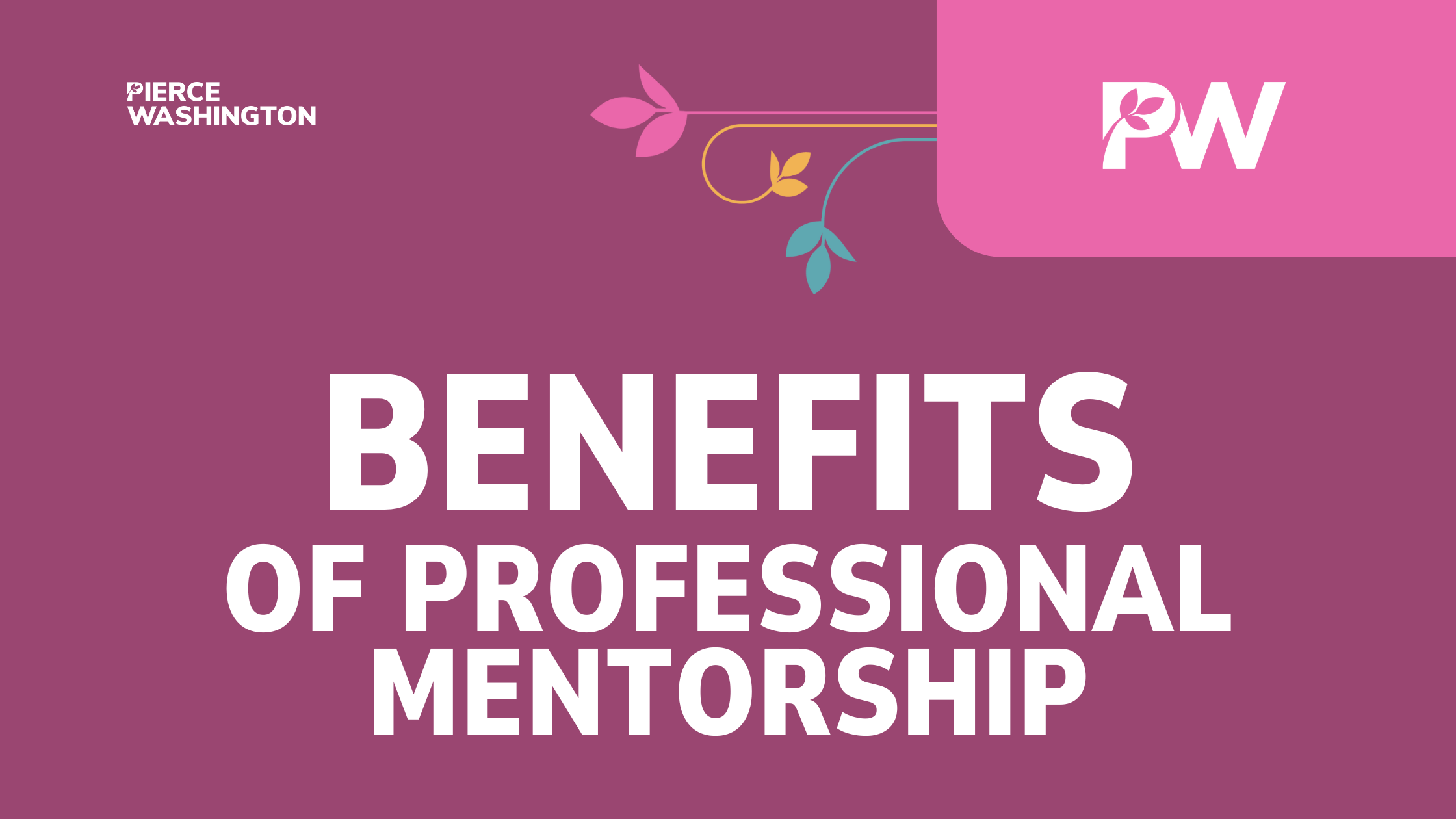Mentorship: Fresh and Actionable Insights
(from three perspectives: mentor, mentee, and someone recently in both roles)
Culture is king at Pierce Washington (PW). One of the ways we build and sustain a healthy culture is by making mentorship a priority. In 2022, we expanded and reinvested into our Career Manager program. This program pairs senior employees at PW with new hires upon beginning at Pierce Washington. We recently interviewed three program participants, at different stages of their careers, to see what they’ve learned so far. In the process, we learned more about the benefits of professional mentorship. In fact, we learned many valuable things—too good to keep to ourselves. The following are some of those real-world benefits of mentorship, insights and tactics that you can use to help yourself, your employees, or your company be the best.
First, a quick level-set with a definition of mentorship
Mentorship is a dynamic relationship where a more experienced individual provides guidance, support, and wisdom to someone less experienced. This partnership fosters personal and professional growth through knowledge sharing, feedback, and encouragement. Mentees gain valuable insights, skills, and perspectives from their mentors, helping them navigate challenges, make informed decisions, and reach their goals more efficiently. Additionally, mentorship promotes a sense of belonging and community, as mentees often feel supported and empowered by their mentors, leading to increased confidence and motivation. Ultimately, mentorship cultivates a culture of continuous learning and development, benefiting both individuals and organizations by cultivating talent, innovation, and resilience.
Insights from the mentor perspective
From someone super passionate about mentoring and really good at it.

Danny is fun and funny. He exudes positivity and heart. He’s a people and team builder. And he’s an encouraging force of nature with a frequent grin. Danny is dedicated to helping PW achieve exceptional results and exceed expectations. For him, a big part of that is mentorship. And he’s able to draw on a lifetime of exceptional leadership experiences in business, life, and the military. Today, Danny sees mentorship as both his duty and privilege, plus his obligation to pass it on and pay it forward. As a dad, kids coach, and senior e-comm professional, Danny believes deeply in teaching and helping others find the path of less resistance in life, work, and sports.
Q: Someone at PW told me that you have a ton of passion around this topic. Why?
A: “I’ve been fortunate to have some great mentors. They let me make mistakes, challenged me, held me accountable, helped me climb to the next level, and showed me examples of incredible leadership. I wouldn’t be here without my own mentors. I want to do that for others, share what I’ve learned, and repay the favor I received. That’s where my passion comes from. That, plus mentorship makes a real difference. Building up others and our company’s future leaders, it’s one of my favorite parts of my job.”
Q: Why mentor? It seems like it could be a pain or a distraction to your own job or company.
A: “It’s easier to be an individual contributor and worry only about yourself. But being a mentor is incredibly rewarding, beyond the job aspect. Seeing others achieve and succeed, and lives changed just by helping someone define their goals and think of things they might not have thought about, that’s an amazing feeling. And it’s not hard to do because people will grow. Water a plant, put it out in the sun, and it will produce fruit. Teach people leadership acumen and allow them to move up, then repeat the process. It’s a waterfall effect. And, yes, it’s a two-way street. For me, nothing is more rewarding. It might be my greatest professional achievement. As for the company, one obvious benefit is employee retention. Consultants only stay 18 to 24 months on average at companies. HERE, THEY STAY because they believe they can have a long fulfilling career at Pierce. Mentorship is part of the reason why.”
Q: What advice can you offer to be an effective mentor and maximize your impact?
A: “Eliminate negativity and fear around failure. Failure is OK. It’s not a sign of weakness, it’s a sign of growth. If you fail, you’re trying. Unfortunately, in IT there’s often an unrealistic expectation that everything has to be perfect or the world ends. I approach it at work the same as coaching my kids’ basketball team (and the kid who missed two free-throws). If a coach yells at him, the kid will hang onto remnants of that negativity and fear around failure and he’ll put a wall up to feedback. But if you encourage, be patient, talk about it, offer tips and support, make it positive and build confidence, next time at the free-throw line they’ll feel more confident and be more capable. So, change how you perceive failure.
Never assume someone can or can’t do something. You may see certain things in people, but don’t set limits on what you think they can achieve. Approach mentorship with belief in the person, believe they can be great. Shine a light on things for them, show them different paths. People will surprise you and rise to the challenge.
Set BHAG goals (big hairy audacious goals). It’s easy for most people to see immediate goals. But help them discover the big, longer-term goals in career and life that are often related. Work with them like a personal trainer to take lots of micro steps to get there. Hold them accountable and help them get little wins toward their ultimate achievement.
Don’t create a carbon copy of yourself. Don’t put your expectations for yourself on your mentee. Instead, show them a path of success tailored to their goals.
And above all, as a mentor, always have your person’s back.”
Q: Can anyone be a mentor? Do you have to be a natural born leader or type-A personality?
A: “Anyone can be a mentor to a lesser experienced person, it just takes desire. You have to want to be a mentor. It’s a mindset. Some people like to keep their head down, but that’s selfish in my opinion. If you’re good at something, share it. And don’t worry, you can learn leadership and get better at it because it’s a skill and just takes time and practice. Put in the work and set proper expectations for yourself. Talk to others that have done it and ask specific questions like, “How do I have hard conversations?” and “What’s the best way to give feedback?” And educate yourself. There are so many great books, like The Inspirational Leader by Gifford Thomas. And one of the biggest things you can do for people you’re mentoring is to be patient. Just slow down and be that support system.”
Q: What are your best tips or advice for mentees to help them get the most out of the experience?
A: “Understand that you don’t have to carve your path yourself. Use the resources around you. Mentors can guide you, remove obstacles, and accelerate your career. So, be receptive. Drop your defenses. Critical feedback is a hard challenge, but don’t take it personally. See it as an opportunity to get better. We’re never too old or too far into our careers to evolve. There’s always an opportunity to learn something, to find little nuggets of knowledge or expertise to better yourself and your skills. The mentorship meetings are for you. Come prepared with questions, maximize your time, and take it seriously. When you do these things, your mentors will be more willing to invest in you. Also, take responsibility and hold yourself accountable. In the end, its your career road.”
Insights from the mentee perspective
From someone earlier in his career that wants to be exceptional in his work.

Will is the perfect name for this mentee because it speaks to his insatiable will to find answers to problems and puzzles. “Maybe I was a detective in a previous life,” Will says. He describes his born-with attention to detail as “almost obsessive.” Will is hardwired for his engineering career. He’s also understated, unpretentious, and frequently engrossed in expansive games of Dungeons and Dragons. Will is someone you want on your tech transformation project. And while he generally speaks with economy, Will is generous with his gratitude for his mentor at PW, Tat Leung. Tat is a Berkley alumni and solution architect with encyclopedic knowledge of Oracle CPQ and 35 years of experience, including 15 with Pierce Washington. As for Will, now seven years into his PW career, he’s become highly proficient with Oracle CPQ in his own right. But Will is smart enough to know there’s much more to learn from his Oracle wizard, Tat.
Q: What benefits are you experiencing from working with your mentor?
A: “Having access to the perspective and skills of someone at the top of my same career track is very helpful. Tat helps me know what to learn, where to focus and gain knowledge, strength, and experience to get to where he is. When I’ve had a tech challenge with Oracle CPQ, I’ve been able to test ideas, bounce ideas, get confirmation, a sanity check from him. The outside team thinking is so helpful, and the privacy factor of that is really nice. Also, I can be a people pleaser, especially as newer person in the field. Tat encourages me to be realistic. It’s a good lesson.”
Q: Why should a new person in the tech field, or any field, seek out a mentor?
A: “Your mentor is an ally with a slightly different agenda. They help guide you, move you forward through your industry and field, and through company channels and people more efficiently. They can help make sure your time spent at work counts and is most effective. Also, not only does a mentor have your back, but they are also your advocate with the ear of higher ups.”
Q: It sounds like you currently have a great mentor. From that perspective, what suggestions do you have for new mentees?
A: “Honesty is important and being open, plus taking risks. Also, don’t be passive, be proactive. Actively pursue regular engagement with your mentor. Establish a relationship and don’t be afraid to reach out and ask for guidance. Be intentional and motivated. Let your mentor know what you want out of your job and career or request help to determine what that might be. Define your goals, small or long term, which can be difficult. Then reverse engineer them to your plan. Set up regular meetings, monthly meetings are good, or weekly at first to get meaningful guidance.”
Q: Flipping the script for a moment, what advice can you give mentors to maximize their impact on those they’re assisting?
A: “Make sure you establish a solid personal connection and have mutual respect. It’s important to have trust in your mentor and feel like they have your back. Also, be a good listener. Mentoring isn’t only about talking. And be sure to match up with the right mentees in terms of having the same specific career focus and goals. That common track and perspective makes a big difference.”
Q: What is it like at PW for newbies in terms of mentorship?
A: “PW creates an environment where it’s baked in with the Career Manager program. Someone is officially assigned to you that aids your day-to-day work. It gives you one person to reach out to for support. They coach you in a positive way and give you frequent feedback, sort of anonymously. The indirect feedback translates into action items that better positions you for quarterly and annual reviews. It’s a great benefit, very useful, and a plus to your upward career path. This has been very important to me.”
Mid-career Insights from Both Sides of Mentorship
From a natural–born leader and champion of people with unmatched compassion.

Tiff is a unicorn—cosmetologist turned coder. She’s always been a caregiver by nature, but at some point Tiffany discovered that she also REALLY likes solving technically complex problems. The closer she got to the zeroes and ones the more at home she felt. “I loved head down and just focusing on every line of code.” Tiff also loves learning about new things and ways the world works. She’s totally in her zone during discovery in the design phase when CPQ systems are being mapped out, data models are being pulled together, and different systems are integrating. Now further along in her career, and with direct reports of her own, Tiffany is relying more on her soft skills. And as a mom of two little boys, Tiffany describes mentoring and nurturing as the same thing and a natural part of every aspect of life. Between kids and clients, her hands are as full as her heart for helping others succeed. But it’s no problem because Tiffany is clearly a doer by the looks of the well-used Peloton in the background of our Zoom call.
Q: Why is it important to become a mentor? It seems like unnecessary extra work in your super busy, multi-hat wearing life.
A: “CPQ is a good industry to be in, but it’s a challenging business and being a consultant isn’t easy. It takes courage and you have to be brave because the stakes are high, a lot of investment is made, and CPQ implementations can be extremely complex. You also have to figure out how to work with each very different client, without being in their company. And you have to be blunt sometimes. What clients need to hear, isn’t always what they want to hear. So, it takes a community of people helping you to do this. Networking and gleaning Salesforce insights from other experts at PW is invaluable. I also have mom mentors that taught me how to not freak out at two in the morning when my child’s temperature is 104.” [smiles]
Q: How have you benefitted from mentorship, and from being on both sides of it?
A: “My mentors have absolutely accelerated my career, increased my knowledge, expertise, and even my paycheck. At one point, I doubled my income by doing as my mentor encouraged me to do. That’s been my experience. So, I see it as essential to your career. On the other side, being the mentor, I love it. I have a lifelong passion for helping people and serving people. I love being a facilitator of people’s goals. I like to set a good example, help people understand things, and guide them to good outcomes whether it’s kids or clients or coworkers, so it’s not work for me.”
Q: How do you know when you’re ready to become a mentor, to evolve from mentee to mentor?
A: “I’ll tell you a little story. I started in tech, computer science degree. I wanted to keep getting better technically. One of my coworkers, knew the CPQ software super well, all the nuances off top of his head. Colby is a real genius and became one of my best tech mentors. For a year he helped me learn those things and more importantly showed me how he discovered how to learn those things. If I had a problem I couldn’t solve, he’d show me. The only downside was he became a bit of a crutch for me. At my next job, there was no one like that there for me. But soon after, the new person I reported to said, “it’s time for you to be the Colby.” That’s when it changed for me. Becoming a mentor really came down to being encouraged, having someone confirm that I was ready. I hope to do the same for those I mentor.”
Q: Can you share any tips or advice on how to be a good mentor, especially after recently being on the other side of it?
A: “First, find out what the goals are of the person you’re mentoring. Start the journey by clearly understanding where they want their career to go. Do they want to grow and rapidly take on more or do they want to stay where they are in the business and get really, really good at it? Reverse engineer from that, then take baby steps to get there. This might involve getting specific certifications or finding out what other tech they need to learn. For me, it also reveals what introductions I can make to help facilitate the mentee’s path, open doors, and start conversations to advance their career plan and help them meet yearly bonus goals.”
Q: Can anyone be a mentor or is it best left to certain personality types?
A: “Not everyone has that mentorship sense of purpose. That’s OK, we need all kinds, and everyone is good at something. But anybody who wants to become a mentor can. You just have to have the basic desire. And most people do that have that desire. (not sure the intended sentence here, but it is not ready correctly). You just have to go into it with a mindset of helping others. And be willing to share what you’ve learned and experienced in this ecosystem to show mentees a possible pathway for them. I didn’t think about mentoring until later in my career. But now the sphere of my career has broadened, and I have a passion for mentoring. And it’s easy at PW because the culture revolves around helping each other.”
CONCLUSION
Mentoring is a win-win-win for mentees, mentors, and the companies they work for. Most of all, it’s a win for clients who benefit from a greater depth of expertise. So, there’s only an upside to making mentorship a priority in your career or business. Creating an environment where talented people can learn, grow, and be the best, quickly becomes a competitive advantage and culture booster. It certainly has for us at Pierce Washington. Thank you for reading.
A Personal Message from PW People Ops
Karen Watson, People Operations Leader at Pierce Washington
“Our Career Manager Program creates a mentorship ecosystem that enables personal and professional growth. Through this program, mentees gain valuable insights and skills, while mentors can give back and shape the future leaders of PW. Together they contribute to a culture of collaboration, knowledge sharing, and a sense of belonging and empowerment, enabling them to channel their focus and expertise into successfully delivering complex projects for our clients. It’s a win-win!”
Interested in joining an organization that prioritizes your personal growth? Check out our current openings to take the first step in beginning your career with Pierce Washington.
